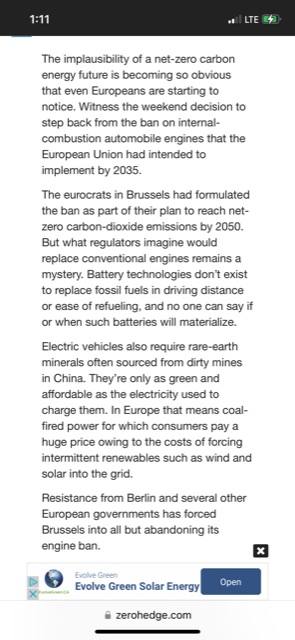So what industry or economy succeeds with the idea we shouldn't increase productivity by becoming more efficient - more output with less inputs.
ICEs are 20% efficient while EVs are 80-90% efficient.
80% of the energy of gasoline used for transportation is wasted because of the inefficiency of ICEs.
And it's wrong to assume that EVs will never come down in relative cost nor improve their technology.
We shouldn't keep using oil for transportation energy just because we need the tax revenue of the oil industry.
Governments can easily figure out how to find revenue from other sources.
ICEs are 20% efficient while EVs are 80-90% efficient.
80% of the energy of gasoline used for transportation is wasted because of the inefficiency of ICEs.
And it's wrong to assume that EVs will never come down in relative cost nor improve their technology.
We shouldn't keep using oil for transportation energy just because we need the tax revenue of the oil industry.
Governments can easily figure out how to find revenue from other sources.


Comment